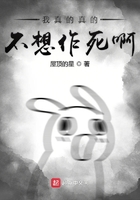The way the question is put here, there clearly could be no place in Marx for even raising it. Stated in a rational way, the question is: How is surplus-value transformed into its subforms: profit, interest, merchants'
profit, land rent, and so forth? And Marx, to be sure, promises to settle this question in the third book. But if Herr Dühring cannot wait until the second volume of Capital [88] appears he should in the meantime take a closer look at the first volume. In addition to the passages already quoted, he would then see, for example on p. 323, that according to Marx the immanent laws of capitalist production assert themselves in the external movements of individual masses of capital as coercive laws of competition, and in this form are brought home to the mind and consciousness of the individual capitalist as the directing motives of his operations that therefore a scientific analysis of competition is not possible before we have a conception of the inner nature of capital, just as the apparent motions of the heavenly bodies are not intelligible to any but him who is acquainted with their real motions, which are not directly perceptible by the senses e; and then Marx gives an example to show how in a definite case, a definite law, the law of value, manifests itself and exercises its motive power in competition. Herr Dühring might see from this alone that competition plays a leading part in the distribution of surplus-value, and with some reflection the indications given in the first volume are in fact enough to make clear, at least in its main features, the transformation of surplus-value into its subforms.
But competition is precisely what absolutely prevents Herr Dühring from understanding the process. He cannot comprehend how the competing entrepreneurs are able constantly to realise the full product of labour, including the surplus-product, at prices so far above the natural outlays of production. Here again we find his customary "strictness" {D. C. 95}
of expression, which in fact is simply slovenliness. In Marx , the surplus-product as such has absolutely no outlays of production; it is the part of the product which costs nothing to the capitalist.
If therefore the competing entrepreneurs desired to realise the surplus-product at its natural outlays of production, they would have simply to give it away. But do not let us waste time on such "micrological details"{D. K. G. 507}. Are not the competing entrepreneurs every day selling the product of labour above its natural outlays of production? According to Herr Dühring, the natural outlays of production consist "in the expenditure of labour or energy, and this in turn, in the last analysis, can be measured by the expenditure of food" {D. C. 274};that is, in present-day society, these costs consist in the outlays really expended on raw materials, means of labour, and wages, as distinguished from the "tax" {D. C. 135}, the profit, the surcharge levied sword in hand {23}. Mow everyone knows that in the society in which we live the competing entrepreneurs do not realise their commodities at the natural outlays of production, but that they add on to these -- and as a rule also receive -- the so-called surcharge, the profit. The question which Herr Dühring thinks he has only to raise to blow down the whole Marxian structure --as Joshua once blew down the walls of Jericho [89] -- this question also exists for Herr Dühring's economic theory. Let us see how he answers it.
"Capital ownership," he says, "has no practical meaning, and cannot be realised, unless indirect force against human material is simultaneously incorporated in it. The product of this force is earnings of capital, and the magnitude of the latter will therefore depend on the range and intensity in which this power is exercised {179} ... Earnings of capital are a political and social institution which exerts a more powerful influence than competition. In relation to this the capitalists act as a social estate, and each one of them maintains his position. A certain measure of earnings of capital is a necessity under the prevailing mode of economy" {180}.
Unfortunately even now we do not know how the competing entrepreneurs are able constantly to realise the product of labour above the natural outlays of production. It cannot be that Herr Dühring thinks so little of his public as to fob it off with the phrase that earnings of capital are above competition, just as the King of Prussia was above the law. [90] We know the manoeuvres by which the King of Prussia attained his position above the law; the manoeuvres by which the earnings of capital succeed in being more powerful than competition are precisely what Herr Dühring should explain to us, but what he obstinately refuses to explain. And it is of no avail, if, as he tells us, the capitalists act in this connection as an estate, and each one of them maintains his position. We surely cannot be expected to take his word for it that a number of people only need to act as an estate for each one of them to maintain his position. Everyone knows that the guildsmen of the Middle Ages and the French nobles in 1789acted very definitely as estates and perished nevertheless. The Prussian army at Jena [91] also acted as an estate, but instead of maintaining their position they had on the contrary to take to their heels and afterwards even to capitulate in sections. Just as little can we be satisfied with the assurance that a certain measure of earnings of capital is a necessity under the prevailing mode of economy; for the point to be proved is precisely why this is so. We do not get a step nearer to the goal when Herr Dühring informs us:














